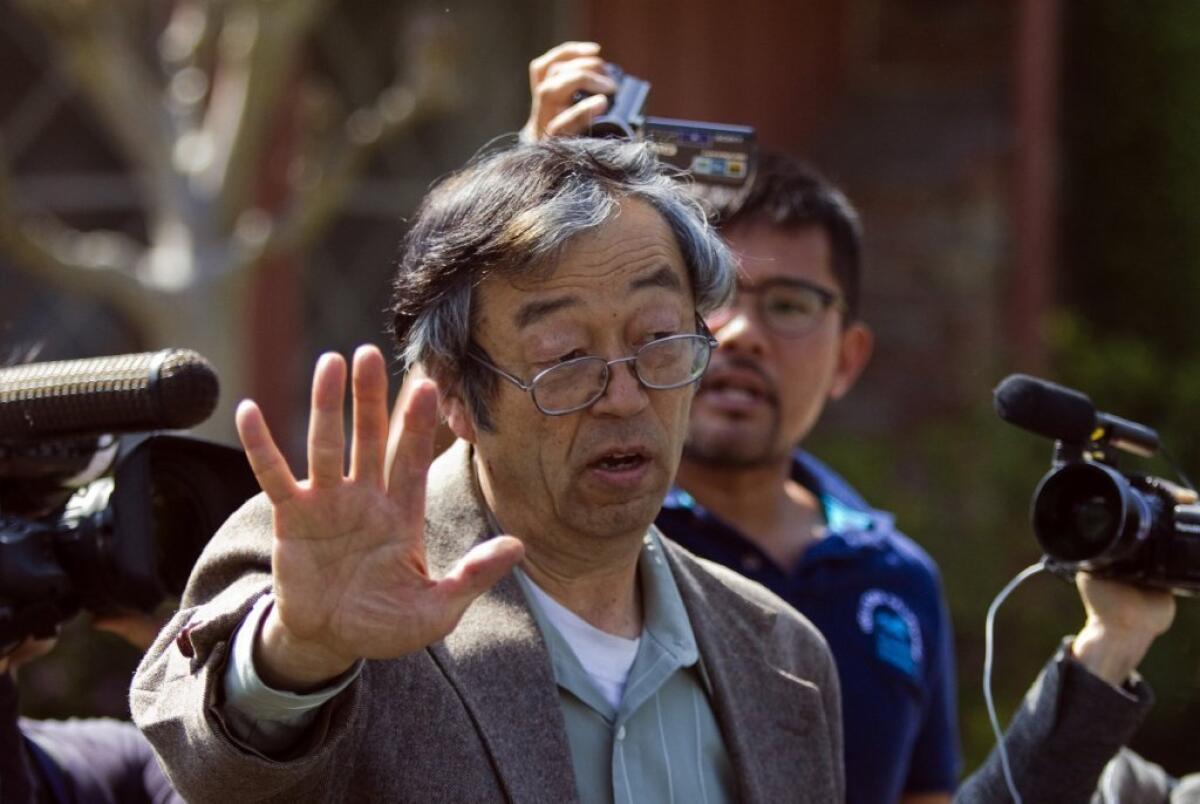The Nakamoto affair and Newsweek’s ‘high editorial standards’

With the questions and controversy about Newsweek’s purported scoop about the real identity of bitcoin’s inventor still unresolved, we’re not in a position to conclude whether the magazine got it right or not.
But a couple of points it has raised in its own defense demand examination--chiefly that its scoop reflects “the same high editorial and ethical standards that have guided Newsweek for more than 80 years.”
Well. When someone leads with his chin, it’s hard to avoid the impulse to sock it.
Quick recap: Newsweek relaunched itself this week with a blockbuster cover story claiming to out the mysterious Satoshi Nakamoto, whose 2008 technical paper is the basis for bitcoin.
“Satoshi Nakamoto” is widely assumed to be a pseudonym, but Newsweek says he really is Satoshi Nakamoto, a 64-year-old computer engineer using the first name “Dorian” and living in plain sight in Temple City. But that Nakamoto denies he’s the guy, and the debate continues.
So what about that tradition of “high editorial and ethical standards” at Newsweek? It’s certainly true that the publication--which is now owned by a different entity than the one that owned it for most of those 80 years--has a long record of journalistic accomplishment to its name. But the episode I recall is its publication of the Hitler diaries.
Remember those? They created a sensation, and a bidding war among big media companies, when they surfaced in 1983. Newsweek won the American rights. By the time it was ready to publish, however, the diaries had been shown to be fakes, forged by a con man named Konrad Kujau.
A whole lineup of certified experts in Nazi history had been taken in--briefly--as was Rupert Murdoch’s London Sunday Times. How did Newsweek handle the truth? It published anyway, with a disclaimer that has gone down in journalistic history: “Genuine or not, it almost doesn’t matter in the end.”
Um, yes, it did. (The whole affair is recounted in “Selling Hitler,” a hilarious book by Robert Harris that sadly appears to be out of print in the U.S.; track down a copy if you can.)
The point is not to suggest at all that Newsweek’s Nakamoto story is fabricated or that its author, Leah McGrath Goodman, has done anything wrong, or even to conclude that the story’s false. If it’s true, it’s a great scoop. If not, it rather suggests one lesson of the Hitler diaries, which is beware of being taken in by your own thesis.
Finally, another point made by Newsweek’s statement in defense of the Nakamoto story is this: “It is natural and expected for a major news revelation such as this to spark debate and controversy. Many of the greatest journalistic scoops have prompted similar reaction.”
True, Newsweek. But so have many of the greatest journalistic flubs.
(For some good weighings of the evidence pro and con on the Nakamoto unmasking, see Felix Salmon here, Karl Smith in the Financial Times here, and Kevin Drum here and here. My colleague Chris O’Brien chronicles the traveling news hound carnival around Temple City’s Nakamoto here.)
More to Read
Start your day right
Sign up for Essential California for news, features and recommendations from the L.A. Times and beyond in your inbox six days a week.
You may occasionally receive promotional content from the Los Angeles Times.







